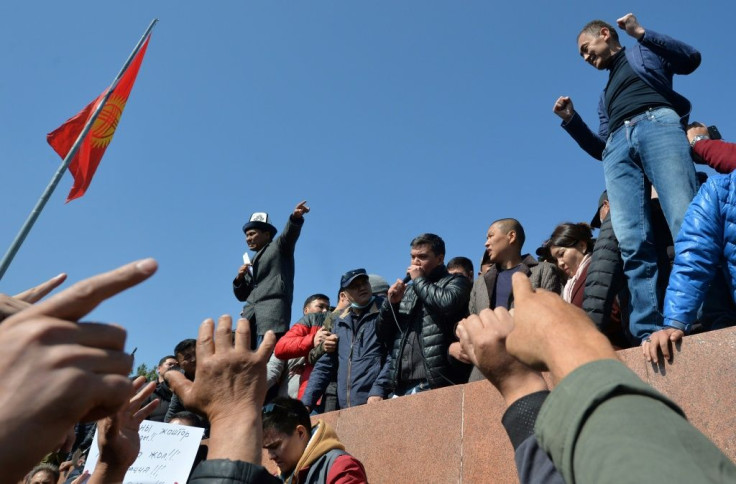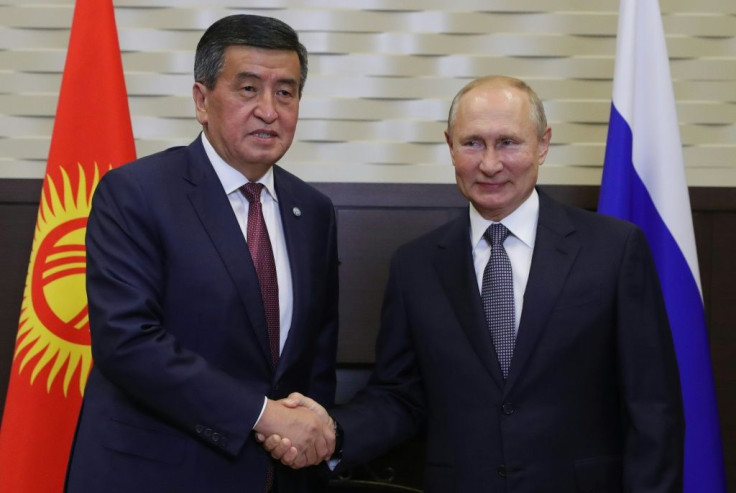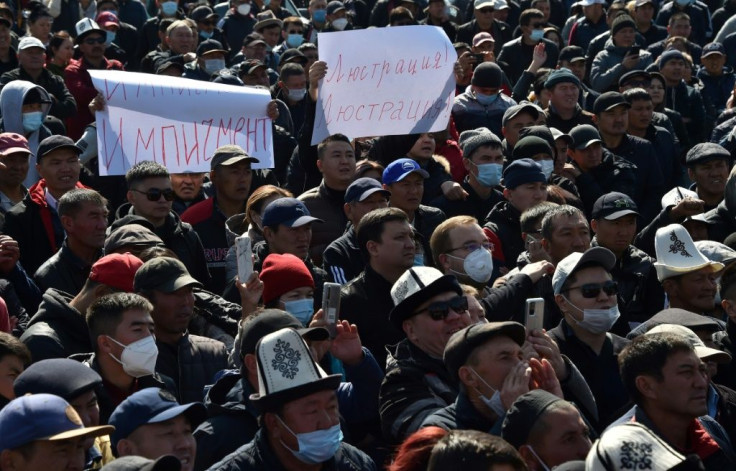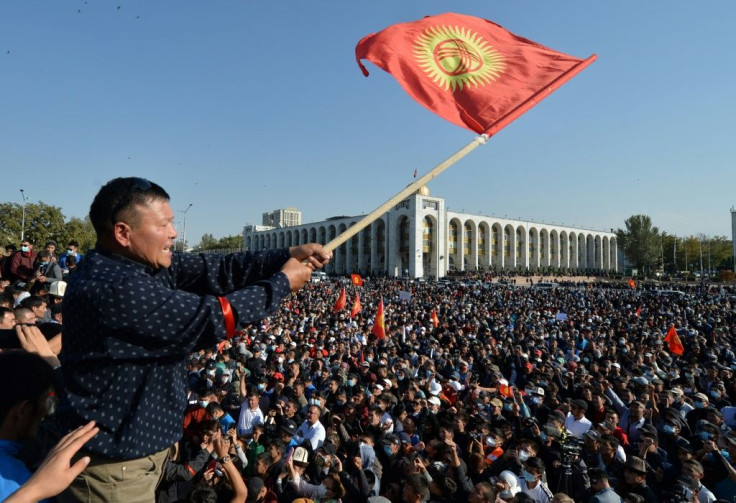Feuding Presidents Fuel Kyrgyz Unrest
Clashes and angry demonstrations forced Kyrgyz officials to annul the results of an election this week, but the protests are fuelled by longer-term tensions stemming from a rivalry between the incumbent president and his predecessor.
Police used stun grenades, tear gas and a water cannon to disperse the crowds, leaving one dead and hundreds injured, after parties loyal to President Sooronbay Jeenbekov secured a majority in Sunday's parliamentary vote.
Protesters seized control of the presidential offices on Monday and freed from jail former president Almazbek Atambayev, who was convicted of corruption earlier this year.

On Tuesday, the incumbent prime minister resigned and was replaced by Sadyr Japarov, also freed from jail by protesters a day earlier.
Jeenbekov said he was "in control" of the situation.

At first, the succession between Atambayev and Jeenbekov appeared to run smoothly.
Both were long-standing members of the Social Democratic Party and Atambayev stepped down in 2017 after his first term as president. His six years in power brought relative stability to a country that had witnessed revolutions in 2005 and 2010.
Atambayev backed his protege and former prime minister Jeenbekov for president.

The election of Jeenbekov later in 2017 was a historic moment -- the first peaceful transfer of power between two elected presidents in the country's history.
But the tranquillity did not last.
Former president Atambayev wanted to retain power by using his network of influence and making Jeenbekov his puppet, according to political analyst Medet Tulegenov of the American University of Central Asia.
His plans went awry as Atambayev had "very little respect" for his successor and underestimated his ambitions, the professor told AFP.

In early 2019, Jeenbekov publicly criticised his predecessor in a decisive moment that broke their relationship, Tulegenov said.
Accused of corruption and stripped of immunity, Atambayev refused to appear in court and resisted arrest after his home in the outskirts of Bishkek was surrounded by armed men in July 2019.
"Jeenbekov is playing with fire and this will end badly. The country will be divided," the ex-president warned at the time.
Following a violent stand-off with security forces in which one died and dozens were injured, the former president surrendered to the police.
In June this year, he was sentenced to 11 years behind bars on corruption charges. He was awaiting a second trial for his role in the armed resistance to his arrest.
The standoff between the two politicians goes deeper than recent political rows, being fuelled by the historic rivalry between northern and southern Kyrgyzstan.
Atambayev comes from the north, where the country's elite live, mostly in the capital Bishkek. Jeenbekov is from the more rural south, where the second largest city of Osh is located.
Politicians are under huge pressure to ensure power and wealth are balanced between the two regions.
During the 2010 revolution, the north was the centre of large-scale protests against a president with a support base in the south.
The protests were followed by attacks on the Uzbek minority in the south.
Meanwhile, Russia is watching the current crisis closely. It has a military base and accepts hundreds of thousands of Kyrgyz migrants.
Yet Russian President Vladimir Putin's attempts to reconcile the two politicians by meeting both in July 2019 were not successful.
© Copyright AFP 2024. All rights reserved.




















